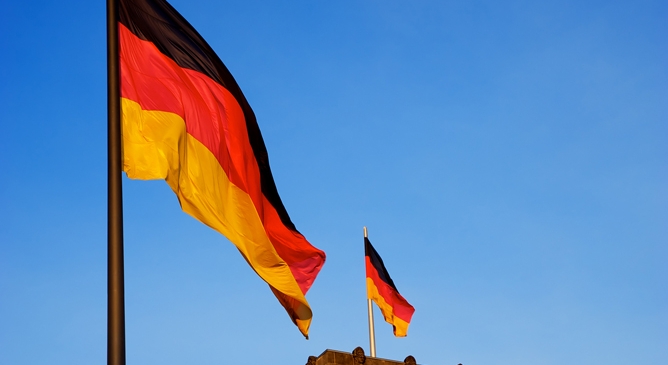
Has Germany become Europe's locomotive?
By Philip Whyte
The German economy has been growing exceptionally strongly of late. In the second quarter of 2010, it expanded faster than any other economy in the G7 and faster than at any time since the country’s reunification in 1990. Industrial output is surging. The rate of unemployment has been declining for over a year and is now well below the eurozone average (let alone levels in the US). Consumer spending and business investment are picking up – and households and firms are generally less burdened with debt than their counterparts in highly leveraged economies like the UK and the US. Germany, in short, seems to have emerged strongly from the Great Recession. Indeed, some observers think it has entered a self-sustained recovery – and that it is starting to act as Europe’s ‘growth locomotive’.
If this were true, it would be welcome. Over the past decade, Germany has not been a great source of demand for the world or the European economy: in real terms, domestic demand is only about 3 per cent higher now than it was back in 2000. For most of the noughties, Germany was structurally reliant on exports for its economic growth: without debt-fuelled spending elsewhere in the world economy, it would barely have grown at all. So any sign of a sustained recovery in German domestic demand would be good news for the country itself and the rest of the world. Not only would it reduce Germany’s reliance on unsustainable (and hence destabilising) foreign profligacy. It would also allow the eurozone and the world economy to rebalance at a higher level of output and employment than otherwise.
Sadly, it may be premature to conclude that Germany has embarked on a durable, self-sustained recovery that will help to lift growth elsewhere. Much has been made of the scale of Germany’s rebound in the second quarter of 2010. But it needs to be placed in context. Germany resembles a bungee jumper in the spring-back phase. It is rebounding faster than neighbouring France. But this is partly because it fell much further on the way down. The size of Germany’s manufacturing sector has resulted in greater output volatility. Germany was hit disproportionately hard in 2008-09 when manufacturers scrambled to run down stocks, but it has since benefited as the stock cycle has reversed. Even after its recent rebound, however, German output is still lower relative to pre-crisis levels than in France.
Besides, the pattern of the recent upturn casts doubt on the view that Germany is acting as a ‘locomotive’ for other countries. The pick-up in domestic demand in the second quarter of 2010 came after three consecutive quarters in which household consumption fell. As for business investment, it is still a long way below pre-crisis levels. If Germany really had become a locomotive for the rest of the EU, net trade would be exerting a drag on its own economic growth. Yet the reverse is the case: net trade has boosted German GDP growth in three of the past five quarters. True, exports to Asia are making a greater contribution to growth. But Germany’s recovery is doing little to rebalance activity in the EU. Indeed, Germany’s trade surplus with the rest of the EU has risen compared with the first half of 2009.
There is a final reason to be sceptical about the prospect of Europe’s largest economy becoming a locomotive for the rest of the EU: it is not clear that German policy-makers want it to become one. As far as they are concerned, the global financial crisis has discredited profligacy and vindicated German prudence. The lesson of the crisis, they believe, is that countries must learn to live within their means. For them, the direction of change is clear: it is for the erstwhile dissolute to shape up, not for Germany to become more spend-thrift. Any suggestion that Germany needs to adjust tends to be met with bemusement, irritation and contempt. Germany has no lessons to take (least of all from irresponsible Anglo-Saxons). And any attempt to hobble German ‘competitiveness’ will be fiercely resisted.
The hopes currently being vested in Germany may consequently be misplaced. The strength of the country’s recovery is partly an optical illusion created by the depth of the downturn which preceded it. Much of the recovery is being driven by net trade. Domestic demand is still fragile and could weaken as the government’s fiscal stimulus is withdrawn and the stock cycle becomes less favourable. And German policy-makers have yet to be persuaded that it is in their country’s interest to reduce its reliance on export-led growth. In short, Germany is not yet acting as a ‘growth locomotive’ for the rest of Europe. And other EU countries, particularly in the highly indebted geographical periphery, may have to get used to the idea that the region’s largest economy may not be about to become one any time soon.
Philip Whyte is a senior research fellow at the Centre for European Reform
